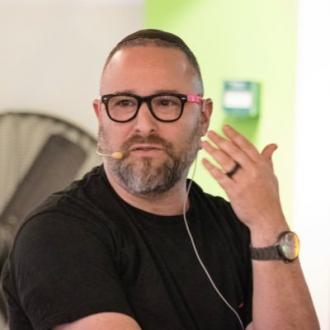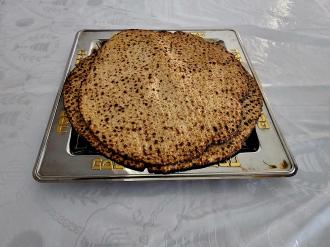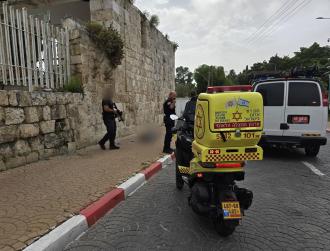JERSEY CITY — To the gentrifying stew of bankers, artists and college graduates who are transforming this once blue-collar city across the Hudson River from Manhattan, add an unexpected flavor.
In a heavily African-American neighborhood, 62 families from a number of Chasidic sects based in Brooklyn and rarely seen here have bought a scattering of faded but roomy wood-frame rowhouses whose prices are less than half what homes of similar size would cost in New York — roughly $300,000 compared with $800,000.
These families are pioneers in a demographic and religious shift that is reshaping communities throughout the region. Skyrocketing real estate prices in Brooklyn and Queens are forcing out young ultra-Orthodox families, which are establishing outposts in unexpected places, like Toms River and Jackson Township in New Jersey, the Willowbrook neighborhood on Staten Island and in Bloomingburg, N.Y., in the foothills of the Catskills.
The influx, however, has provoked tensions with long-established residents, as the ultra-Orthodox seek to establish a larger footprint for their surging population. Residents complain that investors or real estate agents representing the ultra-Orthodox community have been ringing doorbells persistently, offering to buy properties at “Brooklyn prices.” Jersey City, Toms River and Jackson have all passed no-knock ordinances barring such inquiries under the threat of fines or have banned solicitations altogether.
The mayor of Jersey City, Steven Fulop, said his town took pride in its diversity but had been concerned about “very aggressive solicitation.”
“They literally go door to door and can be very pushy trying to purchase someone’s house,” Mr. Fulop, a grandson of Holocaust survivors and a graduate of yeshivas, said in an interview. “It’s not the best way to endear yourself to the community, and there’s been a lot of pushback.”
“We’re not looking to push out anybody,” said Mordecha Feuerstein, a volunteer for a Chasidic organization that helps people find new homes in affordable places like Jersey City.
What Chasidim have opened in a boarded-up dry cleaner on Martin Luther King Jr. Drive, he said, is not a synagogue but a small community center that, like many Jewish institutional buildings, is also used for prayer and study. Next to it is a narrow grocery stocked with kosher foods and Yiddish newspapers. Some Hasidim point out that within a few blocks along the avenue are a Catholic church, a mosque and a storefront church. Those were grandfathered in under zoning rules and officials are weighing whether the community center violates the rules.
Underlying the objections of many municipalities is an often unspoken worry that ultra-Orthodox Jews will transform the character of their communities. The ultra-Orthodox may not explicitly raise the specter of anti-Semitism, but they do see a bias against their unconventional lifestyle, modest dress and customs. Orthodox Jews, in general, live in tight-knit communities because of their need to cluster around an infrastructure that includes a synagogue within walking distance, kosher butchers, yeshivas for boys and girls, and ritual baths.
One community that is rapidly changing is Bloomingburg, on the edge of Sullivan County. A developer, Shalom Lamm, started building a complex of 396 townhouses that he marketed to Chasidim. Opponents claimed the development would quadruple the village’s population of 420 and significantly alter its tranquil, rustic ambience. Thirty homes are occupied and another 70 or so are in various stages of building. Vacant homes nearby have been bought for Hasidic tenants, while a boys’ yeshiva, a ritual bath and a kosher store have opened.
What the village will look like is in limbo, however, because Mr. Lamm pleaded guilty to a federal charge of conspiracy to corrupt the electoral process by signing up ineligible voters to elect a village government friendly to his project. He will face sentencing in September.
Lakewood is also feeling the impact of a fast-growing minority group. Decades ago the area was rural, filled with hardscrabble egg-raising farms owned by Jewish Holocaust refugees, a few grand hotels and an estate that had once been owned by John D. Rockefeller. Read more at NY Times

















